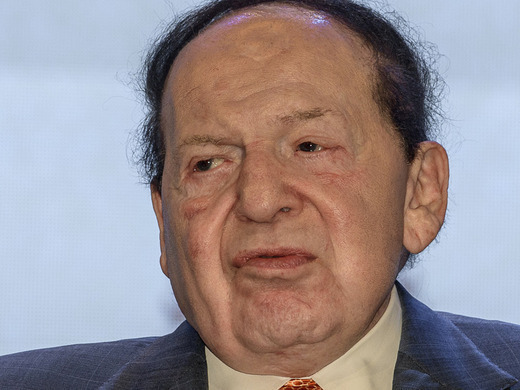






In His Hatred Of I-Poker, Adelson Commissions Survey To Show Legalization Isn't PopularStudy Shows That Voters In Four States Really Don't Want Online Gambling |
|
|

Billionaire casino boss Sheldon Adelson is keeping his foot on the pedal in his desperate quest to squash online poker in the United States.
The owner of Las Vegas Sands Corp. reportedly just commissioned a study of four states in order to show that legalizing online gambling, including poker, is currently not too popular among voters.
According to Ralston Reports, the Tarrance Group, a well regarded national firm, recently completed a series of polls for the Las Vegas Sands chairman.
Surveys were conducted in California, Kentucky, Virginia, and Pennsylvania and “found overwhelming opposition to web poker.” The average distaste for casino games on the web between the four was a whopping 66 percent, with a margin of error of about four percent.
It’s unclear why those states were chosen, but the study said that they are “pro-gaming” states.
California is considered to be the most important state to have on board in an U.S. web poker market. It has 37 million people, tops in the country. However, the fact that voters are not found of online poker is not really the reason why efforts at legalization have failed there. Tribal groups, commercial interests and lawmakers have had an impossible time coming to a consensus.
Adelson has been challenging the online gambling industry because he said he is morally opposed to the idea of such games potentially being played in every household in America. Adelson is a staunch Republican, giving tens of millions to candidates he likes.
No one knows if that’s the complete picture of why he hates the idea of web gambling in the country. His casino company might just not be ready to venture into the space like some of his competitors are. That makes sense, since Las Vegas Sands has been doing very well from its brick-and-mortar business, most notably in Macau. Online gambling in the U.S. is a different animal, one that Sands might not be ready to conquer, and thus Adelson wants everything to slow down a bit so his firm has more time. It has not applied for an online gambling license in Nevada.
His moral position against web poker stems from his apparent fear that minors could gamble. Online poker experts say the risk of minors playing is low, but most agree it cannot be completely prevented. However, neither can minors playing in live casinos with fake IDs. In fact, Sands Casino Resort Bethlehem was recently fined more than $50,000 for underage gamblers at its property.
Despite Adelson’s efforts, licensed and regulated online poker is coming to America, albeit at a much slower pace than most had hoped for, or perhaps expected. Right now, only Nevada, Delaware and New Jersey have legalized web gambling. Nevada is already offering games, while New Jersey will start in late November. Delaware could begin this fall as well.
Federal efforts to legalize nationwide in one fell swoop are widely considered to be drawing dead these days. Adelson’s opposition definitely hasn’t helped, but it is very unlikely he was the reason why nothing ever came to fruition. There are many lawmakers on Capitol Hill who are very reluctant to authorize such a business and they didn’t need Adelson to tell them his thoughts.
Thus, a state-by-state patchwork will develop. Some think that Nevada and New Jersey will partner as soon as next year to combine player pools for web gambling.
It remains unclear if Las Vegas Sands will ever embrace online poker, but it would seem that eventually it would have to if online games are as important to the future of the casino industry as some say they are. Sands already offers mobile sports betting in Las Vegas, so in a sense, it is already dabbling in online gambling. It just is very particular about the kind it’s OK with.
